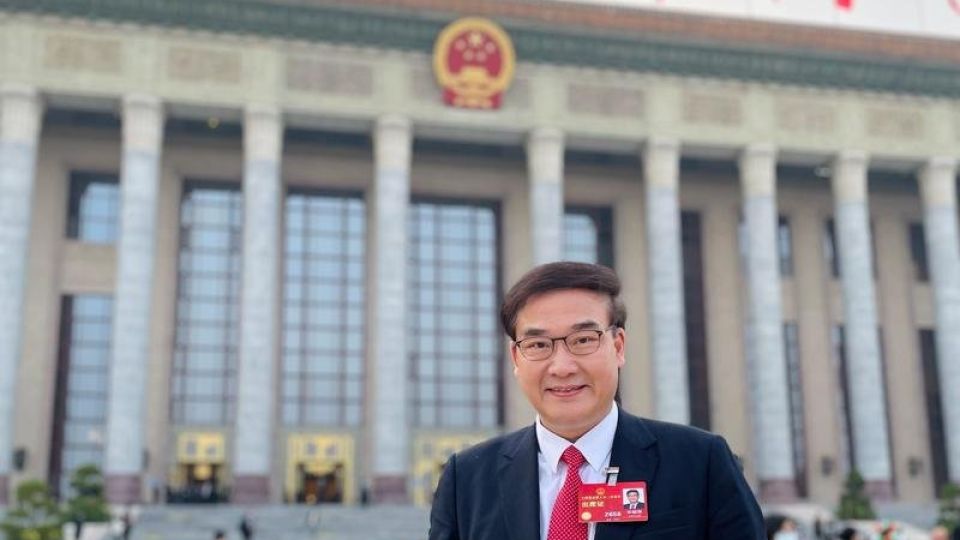March 8, 2023
HONG KONG – Closer medical ties within the Guangdong-Hong Kong-Macao Greater Bay Area could not only give full play to Hong Kong’s world-class medical services but also serve as a linchpin in boosting the city cluster’s healthcare levels, said Dennis Lam Shun-chiu, a Hong Kong deputy to the National People’s Congress (NPC), the country’s top legislature.
Lam, who is also a Hong Kong lawmaker and the founder of C-Mer Eye Care Holdings, made the remarks in an interview with China Daily on Tuesday. His NPC motion for this year focuses on Hong Kong’s medical integration into the GBA and the building of a healthy China.
“It’s a good scenario for all the cities in the GBA to work together in promoting medical services because we have a large enough population of more than 80 million people, with well-established infrastructure and the high-speed train,” Lam said, adding that the city cluster also boasts rich financial resources to support healthcare development.
As one of the world’s wealthiest city clusters, the gross domestic product of the GBA hit 12.6 trillion yuan ($1.8 billion) in 2021, 2.4 trillion yuan more than that in 2017, data from Guangdong’s Development and Reform Commission shows.
Lam cited shortages in Hong Kong’s public dental services, saying many Hong Kong citizens cross the border to get dental treatment on the Chinese mainland as most such services in the city are provided by private institutions that charge much higher fees than their mainland counterparts
Among a slew of initiatives highlighted in the development blueprint of the GBA, promulgated in February 2019, was “shaping a healthy Bay Area”, which is considered part of the efforts to develop the region into a quality living circle for living, working, and traveling.
Lam, as a first mover to tap the opportunities on the Chinese mainland, set up C-Mer Eye Care’s first mainland hospital in Shenzhen in 2013. It also represents the first eye clinic in the country wholly owned by Hong Kong investors.
Acknowledging difficulties such as language and cross-border regulatory requirements, Lam said his eye clinic, which has gone public on the Hong Kong Stock Exchange, nevertheless serves as a good example to Hong Kong doctors considering heading north.
“This is actually the trend because whenever there are patients’ needs, the doctors should be considering,” Lam said. “And you could be successful to the level of the hospital becoming listed. This is encouraging for people who are considering following suit.”
According to Lam, promoting cross-border healthcare integration within the GBA, as mentioned in his motion, can relieve the burden on Hong Kong’s public healthcare system.
He cited shortages in Hong Kong’s public dental services, saying many Hong Kong citizens cross the border to get dental treatment on the Chinese mainland as most such services in the city are provided by private institutions that charge much higher fees than their mainland counterparts.
“Now the quality of healthcare on the mainland is getting better and better, and in some areas they are just the same [standard] as Hong Kong. So I think there will be more cross-border service providers, then the crowding and the long queues in Hong Kong can be improved,” Lam said.


